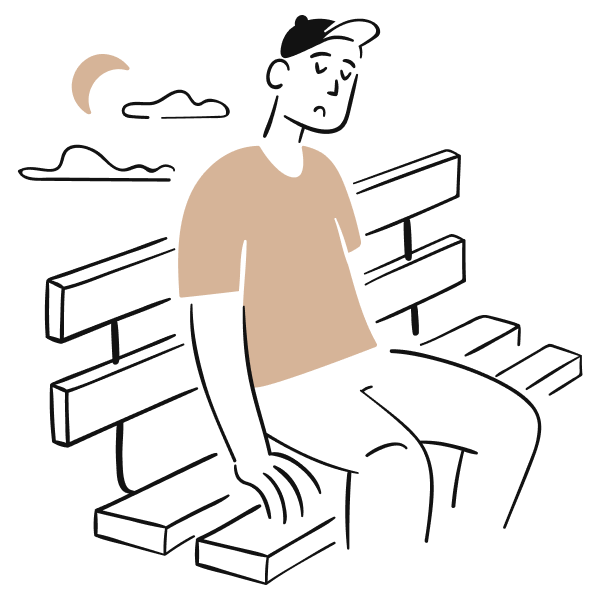Causes of PTSD
How does PTSD develop as a result of trauma? What are the factors that influence whether or not you develop PTSD as a response to trauma? Answers to those questions in this article.
What Causes PTSD?
PTSD is caused by trauma. You experience trauma when a distressing, shocking, or frightening event happens in your life. This may be a one-time event, such as an accident or hospitalization. But post-traumatic stress disorder can also occur as the result of repeated events. For example, recurrent abuse or sexual abuse.
Sometimes it might be caused by a moment in your life that you don’t see or recognize as trauma. Maybe this is because you don’t like thinking about that event or you’ve managed to convince yourself that it wasn’t that bad.
Read more about trauma and its possible causes or the events that can lead to trauma.
How Does PTSD Develop as a Result of Trauma?
Not everyone who experiences trauma also develops PTSD. Whether or not you get PTSD will depend on several factors:
- The nature of the shocking event
Have you been admitted to hospital, experienced the death of a loved one, or been deployed to a war zone? Different traumas have different consequences in terms of the (severity of the) symptoms you experience. - Single incident or complex trauma
Was it a one-off event that caused your trauma? We’d call this single incident trauma. Or was it a recurring event, such as abuse or mistreatment? Are you experiencing ongoing or complex trauma? The duration of the events and the number of the events will affect whether or not you develop PTSD. - Your individual resilience
Everyone has their own emotional carry capacity and everyone processes events in their own way. This is partly hereditary, but your upbringing also plays a role. It determines what you are and aren’t able to process. - Your support network
Do you have people in your life you can trust, who make you feel supported and understood? Are you able to open up and talk about what happened? If you can speak to somebody, you’ll find it much easier to process trauma.
Genetics and gender: There seem to be certain genetic factors that determine how susceptible you are to developing PTSD after trauma. Women are also more likely to get PTSD than men.
Want to talk about PTSD?
Have you experienced trauma and are you concerned about developing post-traumatic stress disorder? Do you need someone to answer your questions, offer immediate help or just provide a listening ear? A psychologist can help you.
-
Book a consultation with an expert for personal advice and professional customized treatment or call on +31207717996 and we will give you personal advice and help creating a treatment plan.
-
PTSD can be treated with Cognitive Behavioral Therapy and/or EMDR. Your treatment will be tailored to you and your symptoms. With the right treatment you can make a good recovery from PTSD. Click here to learn more about treatments for PTSD.


 Nederlands
Nederlands




